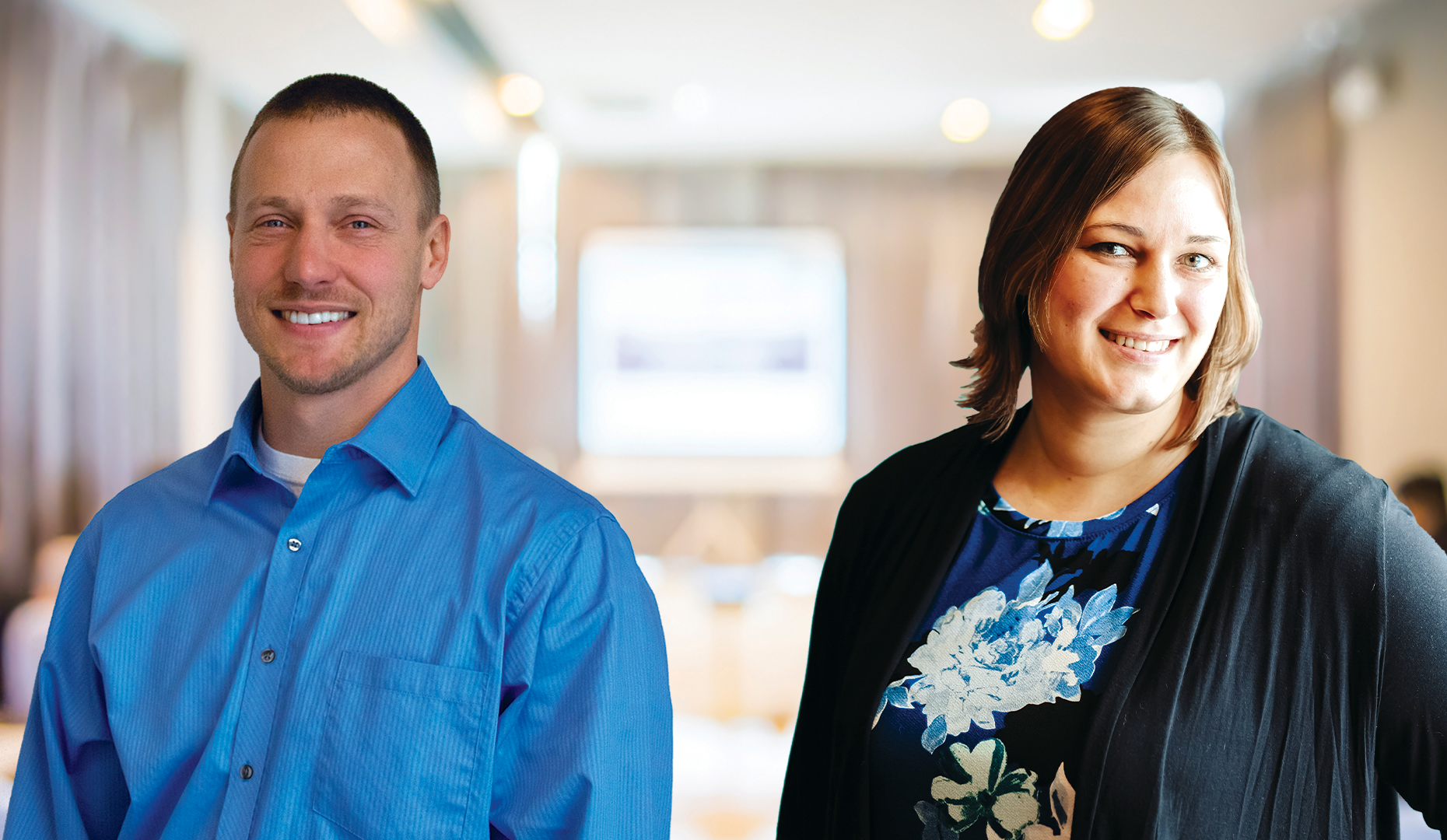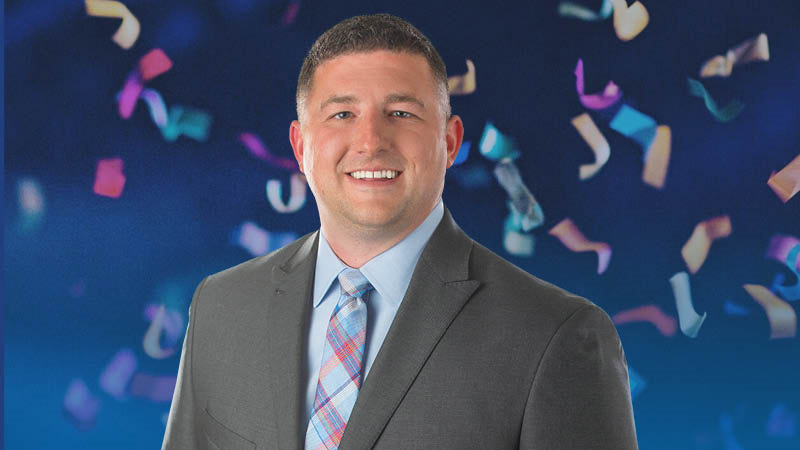We sat down with Alan Smaka, Kalamazoo Office Director for Wightman and Associates, and Tara Vandestreek, Accounting Supervisor at Getman Corporation, to hear these leaders’ thoughts on success, development, motivation, and more.
First Things First
First job?
Tara: Summer Camp Counselor
Alan: Street Sweeper
First app you check in the morning?
Tara: Email and Calendar
Alan: Texts and Missed calls
First concert you attended?
Tara: John Mayer
Alan: MC Hammer
Definition of Success
Tara: Success for my team is the ability to stay on top of volume. We process all the accounting documentations, so I set milestones and checkpoints along the way that ensure we’re still on target to meet our longer-term objectives as well.
Alan: I think the most fundamental answer is growth and improvement. Success is being better today than you were yesterday. There’s a lot of different areas that you can improve upon, whether it be financial, emotional, professional, or spiritual. I am trying to be a better person all around and master the art of living in balance between work and leisure, love and religion.
Decision Making
Tara: I’m a very black-and-white person, which lends itself to accounting. The hardest decisions for me are the ones shrouded by a high level of uncertainty. When I was forming my career, the most difficult questions to answer were questions like, “Where should I go?” and “Who do I want to be?” In leadership, it’s much the same. Deciding on a new next step when the future is uncertain is always the most challenging.
Alan: The people decisions. As a leader, you’re in a position where you need to both admonish and praise at the same time. You need to be timely and impactful to do that. At Wightman, we’re a really happy company, but it’s my job to make sure that it stays that way. Part of leadership is making sure everybody feels comfortable and safe.
Handling Stress
Tara: I make sure that I set aside time for myself. So as long I know that I’ve got time set aside, then I can work through the stress so I can get to that time of relief and rest. I love horseback riding; I make sure that I go to the barn once a week to ride my horse. For me, it’s emotionally rewarding and stress relieving.
Alan: If I feel I need to rest, I go rest. If I feel I have too much going on, I’ll ask for help. My Achilles heel, as well as my blessing, is that I have no problem working. When the rubber hits the road, I work. Even so, I am learning to take time off for myself.
Getting Creative
Tara: When I outline an objective, I sit down with my team, and we talk. Afterward, I always allow space and time for them to ask questions and come up with creative new ideas. Maybe my objective prompts something that they’ve been thinking about, but they are too afraid to bring it up in a meeting. Leaving that space lets ideas form, but also allows everyone to contribute.
Alan: There are a variety of different things. One is that you have to be the example. Never ask anybody something you wouldn’t be willing to do yourself. Also, provide the freedom and flexibility for your team to make mistakes and even fail. Always be there for support, but then get out the way. The other thing is to ask atypical questions that spark critical thinking. If you ask a cliché question, you’ll get a cliché answer.
The Motivation
Tara: I’m a list-maker. Being able to put things on a list and check them off is motivating, but it’s more inspiring to look to the big picture. Keeping in mind where I’m going in life and where we are headed as an organization gives me the motivation to attack my to-do list. Looking to the big picture helps keep every bullet point on my list in perspective.
Alan: I want people to have the best life they can have. Seeing the pain in people makes you want to do whatever you can each day to help. The hard part is that you may want to save the whole world, but you can’t. All you can do is invest the time you have each day. You are given 84,000 seconds in a day—after you spend them, you’ll never get them back. The first part of my life was about getting myself established, but now I am in a unique position to give back.
Personal Development
Tara: I have a 45-minute commute every day, in both directions, so I’m on the road a lot. In the morning, I listen to some developmental material, whether that’s an audiobook book or a podcast. I try to derive some practical application from everything I read so I can share what I learned with my team. Recently I read the book “Atomic Habits” [by James Clear], which is all about habit formation.
Alan: More than anything, I have been encouraging the staff and myself to develop critical thinking skills. I try to pull information from as many different thought leaders as possible, see what the commonalities are, and then bring them into perspective to find out what it all means to me. If you copy-paste whatever is popular now, it won’t be authentic. You have to think critically and synthesize your own meaning.
The Mentor
Tara: My mom. As I’ve been going through my career, I can go to her, and we can have a conversation about what’s next. She can draw upon the huge variety of her experiences, and how they translate to my life. One thing that she’s taught me is to tune out the naysayers and never stop going after what you want.
Alan: It’s undoubtedly my dad. I rely on his steadfast guidance and frank advice. But broadly, it’s hard to name a single individual. I believe that if you listen closely, you can learn from everyone. I’ve been playing in a dance band since I was 12 years old. We play the music of the Greatest Generation, and over time, I have had thousands of grandparents tell me about their life stories. I am fascinated by every one. Hearing their stories has given me a greater perspective of what life really is.




